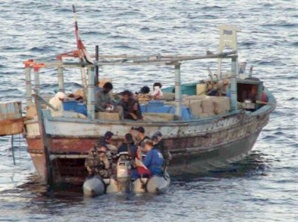Maritime Communications
DID YOU KNOW?
Satellites are the only means of communication for ships on the high seas. They enable reliable, stable and low interference communications links - good for safety of life applications as well as a range of other applications driving global businesses.
Communications often need to be maintained over wide areas of the globe, for example, ships, aircraft and people on the move. This requires global 'mobile' or 'on the halt' communications coverage all around the world. Satellite communications is now fitted as standard to 98% of merchant vessels, and it is becoming increasingly used by aircraft, and in time may be adopted for Air Traffic management (ATM) as well. Mobile satellite systems preserve the lives of seafarers, enabling ship to shore communications as well as contributing to the safety of navigation and the vessel itself by enhancing situational awareness. Downloading navigation chart updates over mobile broadband can be achieved, in addition to exchanging voyage, fuel consumption, weather and other business process data with shore.
Mobile satellite systems preserve the lives of seafarers, enabling ship to shore communications as well as contributing to the safety of navigation and the vessel itself by enhancing situational awareness. Downloading navigation chart updates over mobile broadband can be achieved, in addition to exchanging voyage, fuel consumption, weather and other business process data with shore.
Ship tracking and security/anti-piracy capabilities are already advanced through satellite with numerous commercial operators already playing a very active role in protecting the commercial interests of the ship operators through optimised routing. Fisheries management is becoming increasingly important as is conservation and citizen welfare.
Some of the key features are:
- Obtaining ship position reports for intelligence and control
- Providing safety advisory messages to ships
- Communications, including emergency calling
- Support from the air
- Support to anti-piracy actions